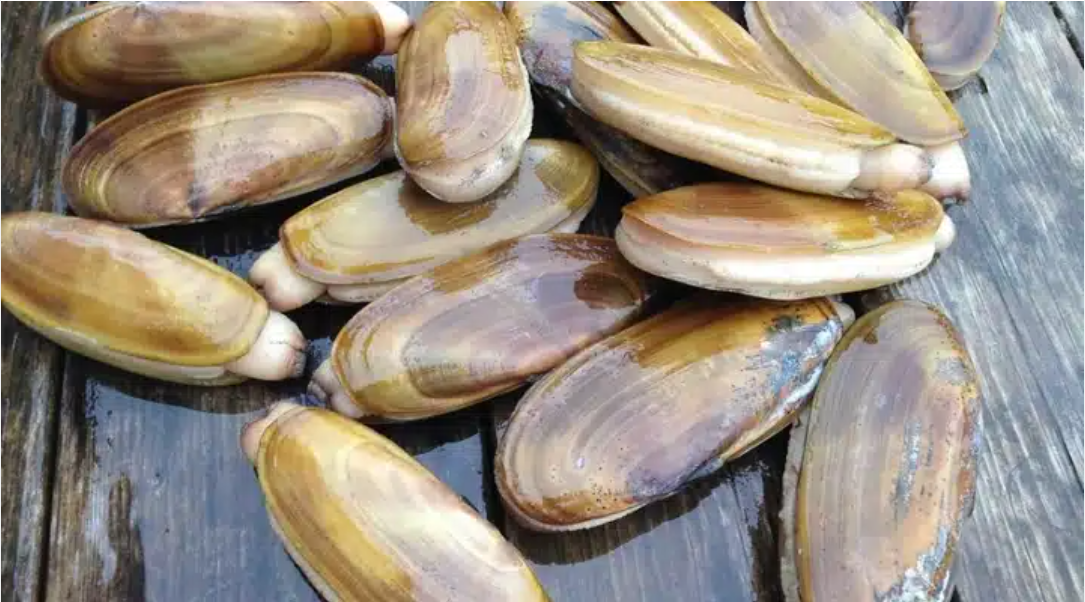NOAA’s National Centers for Coastal Ocean Science (NCCOS) Harmful Algal Bloom (HAB) Event Response Program awarded $6,000 to the University of Washington’s Olympic Natural Resources Center, Northwest Indian College, and Oregon Department of Fish and Wildlife to assist with Oregon’s response to an outbreak of Paralytic Shellfish Poisoning (PSP). Since Memorial Day weekend, at least thirty-one people have become ill after eating shellfish harvested from the northern coast of Oregon, with some people requiring hospitalization. Shellfish testing results indicated PSP as the cause of these illnesses, prompting Oregon to issue harvesting closures for mussels, razor clams, bay clams, and oysters.
PSP is caused by neurotoxins (like saxitoxin) produced by certain species of harmful algae, including Alexandrium catenella. During an Alexandrium HAB event, shellfish can accumulate dangerous concentrations of PSP toxins. These PSP toxins are not destroyed by freezing or cooking shellfish. Consuming toxic shellfish can cause PSP in humans and other mammals, including marine mammals and birds. Symptoms of PSP in humans can include numbness or tingling of the mouth and lips, nausea, vomiting, diarrhea, cardiac and respiratory failure.

Shellfish are regularly monitored for HAB toxins, and harvests are closed when toxins exceed regulatory limits. On May 23, Oregon initially closed all mussel harvesting from Seal Rock to Cape Lookout due to elevated PSP toxins in shellfish. The state has since expanded the closure coastwide to include all harvest of mussels, commercial and recreational harvest of razor and bay clams, and commercial oyster sales in Tillamook, Netarts, and Umpqua Bays. In parts of Washington state, PSP toxin concentrations have also exceeded regulatory limits. As of June 5, Washington closed all recreational shellfish harvest statewide and paused commercial harvest in Willapa Bay. Both Oregon and Washington have issued recalls on some shellfish products due to this PSP event. It may be weeks to months after the bloom ends before shellfish harvest areas can be safely reopened and as the bloom can be patchy along the coast certain areas may open sooner than others. In both states, seafood companies and their workers are facing economic hardship and state labs are working to handle the increase in regulatory sample testing.
This NCCOS-funded HAB Event Response project seeks to aid both industry and state agencies. Rapid tests to pre-screen shellfish samples for PSP toxins, like the enzyme-linked immunosorbent assay (ELISA) could reduce the number of samples analyzed by state health departments, helping meet the immediate need for better early warning of rising PSP toxin concentrations in seawater and shellfish. The NCCOS-funded response team will work with the Olympic Region HAB (ORHAB) partnership and partners at Oregon State University to obtain shellfish and seawater samples from Oregon and Washington beaches. The team is working with Beacon Analytical Systems to develop an ELISA as a rapid test for analyzing shellfish and seawater samples, to help reduce the chance of additional PSP illnesses. Results from the ELISA will be confirmed by the Northwest Indian College Salish Sea Research Center using another toxin detection method, liquid chromatography mass spectrometry (LCMS). This approach promises to provide rapid analytical tools that are key to safeguarding human health, especially when HABs appear with little warning.
NOAA continues to work with federal, state, and other partners to assist with the response to this ongoing HAB event. NCCOS scientists used satellite imagery to confirm for partners that a large phytoplankton bloom formed rapidly off the coast of Oregon over Memorial Day weekend. NOAA and U.S. Integrated Ocean Observing System (IOOS)-funded researchers are also helping document the offshore extent of the bloom.
Before harvesting shellfish, call the biotoxin hotline in your state for the most up-to-date information on closures.
Oregon shellfish biotoxin hotline: (800) 448-2474.
Washington biotoxin/red tide hotline: (800) 562-5632.
The NCCOS HAB Event Response Program provides immediate support to help state, tribal, and local officials manage events and advance the understanding of HABs as they occur. For more information about the NCCOS HAB Event Response Program, contact us at nccos.hab.event.response@noaa.gov.
Partner Links:
- University of Washington – Olympic Natural Resources Center
- Northwest Indian College – Salish Sea Research Center
- Oregon Department of Fish and Wildlife (ODFW)
- Olympic Region Harmful Algal Bloom (ORHAB) Partnership
- Oregon State University
- Beacon Analytical Systems
Related Links:
